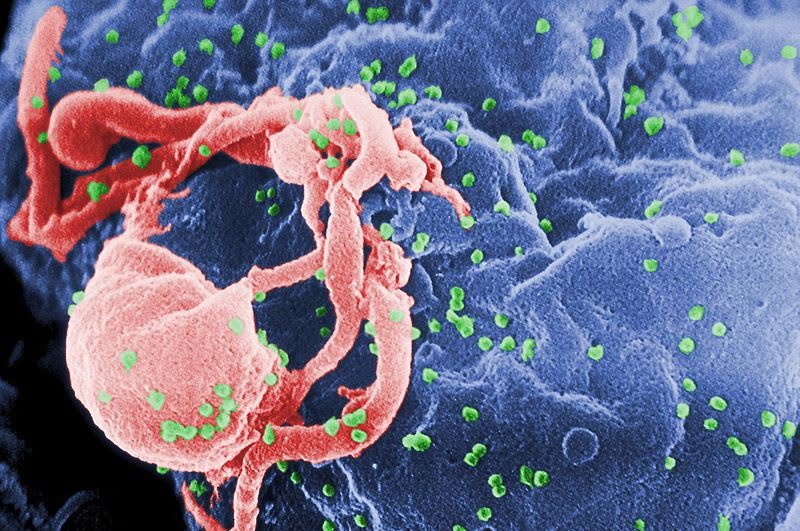This article was first published by The Times of Israel and was re-posted with permission.
HIV and AIDS patients may find new hope in a drug developed at the Hebrew University of Jerusalem, which is currently being tested at the Kaplan Medical Center in Rehovot.
The drug was inserted into test tubes containing the blood of 10 AIDS patients currently being treated at the hospital, and was found to decrease the HIV virus count in the blood samples by as much as 97 percent in just eight days, Channel 2 reported Monday.
SEE ALSO: One Israeli Researcher Is Outsmarting HIV To Cure AIDS
The active ingredient in the drug is a peptide, or smaller version of a protein, that was developed by Abraham Loyter and Assaf Friedler at Hebrew University. The peptide causes several copies of the virus’s DNA to enter the infected cell, instead of just one copy, causing the cell to self-destruct.
HIV is currently treated with a cocktail of drugs that slow the progression of the infection in the body but never rid the patient of the virus entirely. These drugs have allowed doctors to treat AIDS as a chronic illness as opposed to a fatal one.
Loyter explained that the new approach is superior to previous efforts.
Sign up for our free weekly newsletter
Subscribe“With our approach,” Loyter told Channel 2, “we are destroying the cells, so there is no chance that the virus will awaken one day, because there are no cells, there will be no cells that contain the virus.”
SEE ALSO: Breakthrough Israeli Research Improves HIV/AIDS Treatment, Could Lead To Cure
Loyter explained that “the drug enhances certain processes in the body during the spreading of the virus and that enhancement kills certain cells.”
In a separate but related development, the Health Ministry announced last week it would begin distributing prophylactic drugs for the first time to populations at higher risk of contracting HIV. The drugs, when taken regularly, have been found to be effective in preventing the spread of HIV during contact.
To read the full article, click here.
Photos: Courtesy
Related posts

Israeli Medical Technologies That Could Change The World

Harnessing Our Own Bodies For Side Effect-Free Weight Loss

Missing Protein Could Unlock Treatment For Aggressive Lung Cancer






Facebook comments